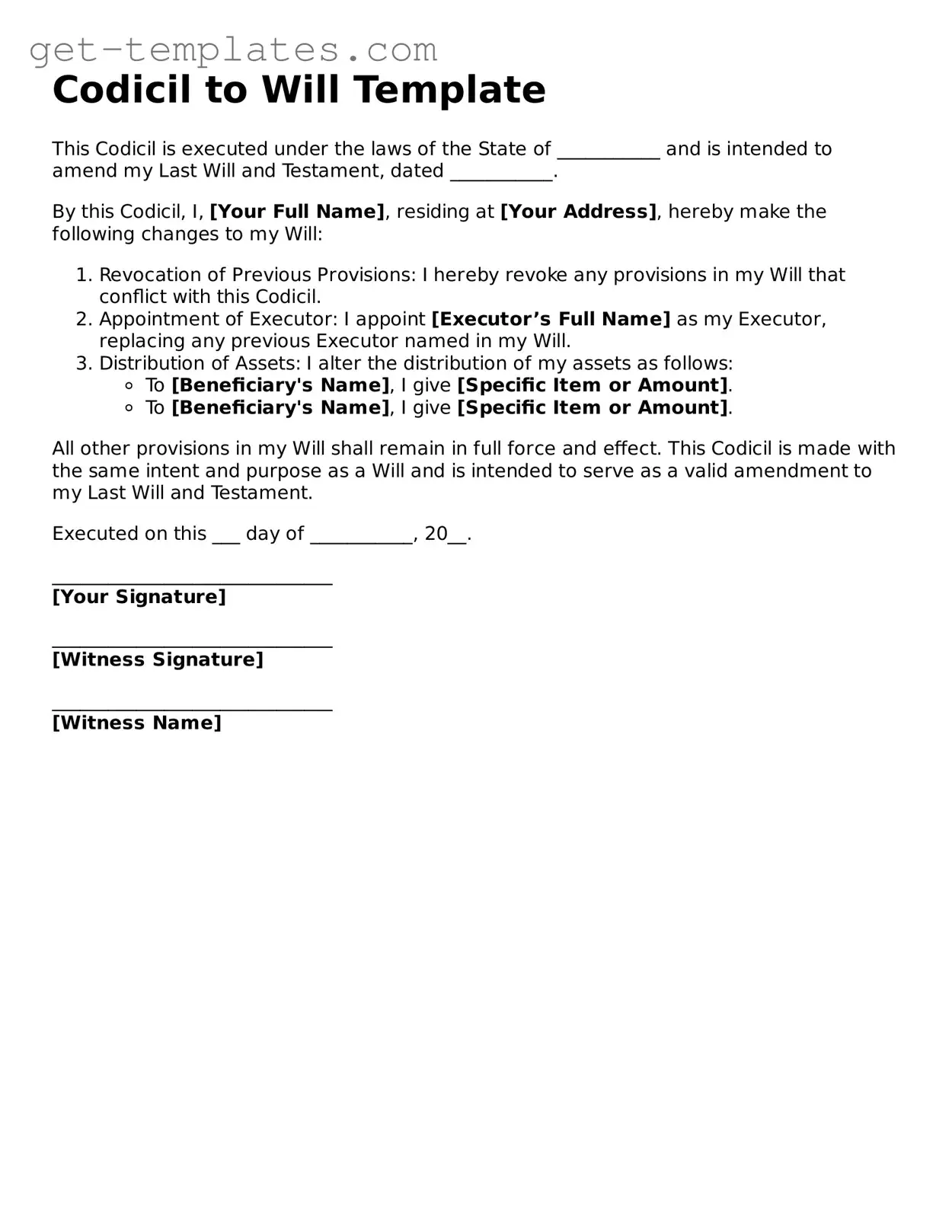What is a Codicil to a Will?
A codicil is a legal document that modifies, adds to, or revokes provisions in an existing will. It allows you to make changes without having to create an entirely new will. This can be useful for updating beneficiaries, changing executors, or altering specific bequests.
When should I use a Codicil?
You should consider using a codicil when you want to make minor changes to your will. Examples include:
-
Adding or removing a beneficiary.
-
Changing the executor of your estate.
-
Updating specific gifts or bequests.
If the changes are extensive or involve complex legal issues, it may be better to draft a new will.
How do I create a Codicil?
To create a codicil, follow these steps:
-
Clearly identify your existing will, including the date it was executed.
-
State your intentions for the changes you wish to make.
-
Sign the codicil in accordance with your state’s requirements, which often include having witnesses present.
Always ensure that the codicil is properly executed to avoid any legal complications.
Do I need witnesses for a Codicil?
Yes, most states require that a codicil be signed in the presence of witnesses, similar to a will. The number of witnesses and their qualifications can vary by state. Always check local laws to ensure compliance.
Can I revoke a Codicil?
Yes, you can revoke a codicil at any time. This can be done by creating a new codicil that explicitly revokes the previous one or by physically destroying the codicil. It is essential to ensure that your intentions are clear to avoid confusion.
Will a Codicil affect my existing Will?
A codicil modifies your existing will. It does not replace it. The original will remains in effect, along with the changes specified in the codicil. If there are inconsistencies between the will and the codicil, the codicil will take precedence regarding the changes made.
Is there a limit to how many Codicils I can create?
There is no legal limit to the number of codicils you can create. However, having multiple codicils can complicate your estate plan. It is often advisable to consolidate changes into a new will if many modifications are needed.
Can I create a Codicil without a lawyer?
While it is possible to create a codicil without legal assistance, it is highly recommended to consult with a lawyer. Legal professionals can ensure that the codicil is valid and complies with state laws, helping to prevent potential disputes among beneficiaries.

